Fiction
Nonfiction
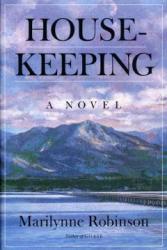
How can the deepest loss be quantified? What happens in the heart of a little girl when her mother drives off a cliff after leaving her and her sister alone at Grandma’s? How does such a girl become a woman? Who does she grow to be?
In the achingly beautiful prose that only Robinson can craft, the reader comes to taste a small portion of the fear, the ache, the loneliness that is the human heart. All these emotions find their representation in the haunting landscape that surrounds the forsaken town of Fingerbone. The defining feature of this town, next to its remoteness, is a great, icy lake. A train full of many passengers, including the young girls’ grandfather, once plunged off the bridge into that lake. Her mother also drove her car into it.
By staring into it, Ruthie sees everything lovely swallowed up. As she grows older, she finds herself bound to the same hopelessness that drove her mother into there. She begins to feel the pull.
Ruthie’s aunt Sylvie, now her guardian, represents the living dead.
Although she has never tried to drown herself in the lake, Ruthie begins to realize more and more that the cold lake is where Sylvie’s heart lies. She begins to see Sylvie as a representation of what her mother would be like if she had never driven off, but wished everyday that she could. What Ruthie needs as she comes of age is someone to bring her into the light. She needs someone to be the mother she never had: to delight in her and think that everything she does is adorable. But true to real life, the longing that Ruthie has is never realized and she resorts more and more to the cover of darkness.
This is a book that stares loss in the face for what it truly is. When one gives one’s life over to darkness, the ripple effects are so devastating, so tragic, so destructive, that a little girl can be forever derailed. And what can be more heart-rending than that?
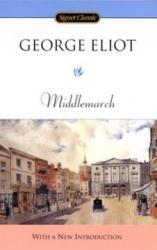
Few novels have the ability to do several things at once, and do them well:
invoke a strong sense of place, bring characters to brilliant light, create a plot that intrigues, and allow all three of these elements to weave together into a pattern that is simultaneously beautiful, heart-breaking, and resonating with every day life. But Middlemarch achieves these things effortlessly. A small, provincial village, with all its petty pursuits, its bickering, its politics, but also its small acts of heroism, soon has the reader feeling as if he knows this place to well; it could almost be his home.
The real draw of the book however is the depth to which each character becomes known to the reader, known better than we know our friends, and maybe better than we know ourselves. Only a master novelist can peel back the layers of a character's mere actions and reveal the motivations of the heart.
She doesn't just show us unhappy marriages, she shows us why they are unhappy. Pettiness and self-absorbtion consumes some, kindness and devotion are what others live for.
I highly recommend this piece of superb literature for its insight into the relationship of the sexes, and how things can go wrong, and how things can go right. She doesn't shy from the ugliness of relationships, while also showing how much good can be done to one whose heart is devoted to goodness.
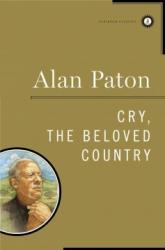
The mystery of unbelief and rebellion and the misery that flows flows from it, is a great theme in scriptures and is played out painfully and powerfully in this epic novel. The questions surrounding unbelief, the pain to all who witness lives unraveling, and the consequences that lead to death can never be expounded upon simply. They are mysteries without simple answers.
In this profound book, some are driven to evil and misery by poverty and social injustice. But others, particularly two of the main characters, choose dark paths when they have been given every opportunity out. Light and life are offered but they follow after death and darkness.
Although this is story set in South Africa, it bears meaning for all time.
All are offered living water. "Come to me all you who thirst, come buy and eat, without money and without price." But many will not come. The dog returns to his vomit and sow to wallowing in his mud. To those who have tasted of the everlasting water, to those who know life and light, this remains among life's greatest mysteries. Everyone is offered cleansing waters of forgiveness, they are offered an eternal pardon, they are offered everlasting joy, they are offered peace and hope, but they love the darkness.
And they suffer for their choice as their life unravels thread by thread, and they bring grief upon grief on everyone who loves them. But they do not care and they do not turn. And Jesus wept over Jerusalem saying: "How often would I have gathered your children together as a hen gathers her brood, but you were not willing."
A father weeps over a son and a sister, and as he weeps, he participates in the weeping of Jesus over Jerusalem. And yet, there is one in the story who flees corruption.
The ultimate crisis of this story takes place in the heart of the old priest who has led a faithful life. For darkness is predatory and never at rest, but it creeps and pursues and desires to consume and devour and distinguish all light. Will the priest be overtaken by hopelessness and despair and fear in his darkest hour? Will anger and perplexity and grief have the final word in his bereaved heart? Where will he turn to comfort? The darkness will not stop pursuing him and will not be content until he too has lost his joy in life.
How will he fight? What will he hold on to?
Highly recommend.
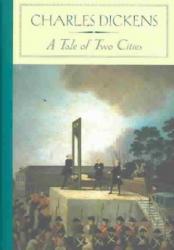
Profound human love and the most repugnant savagery, horror and redemption, a heroine and a grotesque revenger, two families with dark secrets, two cities, all in the backdrop of the bloodbath that was the French Revelation. In reading it, be prepared for the "Best of Times and the Worst of Times."
Like all great stories, the brilliance of this tale is its ability to not only intimately draw us into the tangled lives of these characters, battered by the historical tyrannies of their time, but to use their story as a parable to understand the human narrative as a whole. Perhaps this is why Dickens believed this book to be his magnam opus; perhaps he felt like it was his clearest statement of what he believed.
The struggles of a small family open the reader's eyes to understanding the larger struggles of humanity in general. We learn not only about the turmoil and violence plaguing France at the time of the French Revolution, but the sin and darkness plaguing our human race. Through this story, we understand principles which will prove true for all times and all places. Dickens writes that the evil cruelty of the French aristocracy gave birth to something according to its kind, the French Revolution, as all things since beginning of creation have produced according to their kind. Evil begets more evil.
This is the story of humanity.
But redemption and resurrection echo throughout the novel as well. Darnay had a mother, who, though an aristocrat, once sought to make restitution for the something incredibly cruel her heartless husband had done. This woman is mentioned only once briefly in the whole book, but her influence on her son Charles Darnay profoundly changed the course of Darnay's life and the whole book.
Even Dickens' style of writing is a reflection on the truth of real life. For instance, every single scene in the book is important to the story, although for the first half of the book, the reader can't figure out how it will come together. But at the end, as everything is revealed, the reader can think back and see the purpose for each scene. Similarly, as we walk through life, we rarely understand the purpose for the various scenes we find ourselves in.
Although we will never understand completely until heaven, there are times when it is all brought together and we see the purposes behind puzzling circumstances.
In typical Dickens style, this book is written to tug at your heart strings.
But this is not done in a manipulative or sentimental way, but in the most straightforward way possible: by giving an often newspaper-sounding account of the events that take place in each scene. Yet any reader with a pulse will be profoundly moved in numerous scenes. How does he do this? By focusing his accounts on the human element, the true purpose behind any story. Woven through every page in this book is the message that every human being counts.
Collectivism, sacrificing the individual for the group, is shown to be barbaric.
Another stroke of genius is Dickens uncanny way of portraying evil. Madame DeFarge becomes in the book everything that she hates. The reason she got to be the way she is, was because of something terrible that was done to her sister and brother by the aristocracy when she was still young. And yet, at the end of the novel, it is said of her that as she puts men and women to death, she cares nothing that they may be innocent, or that they may leave behind a bereft sister or brother or wife. She only cares that more and more people die, and she is never satisfied.
In a pre-Flannery O'Connor style, Dickens leaves the reader no room for false hopes in the goodness of humanity. He wants to take your false hopes and hit them out of the ballpark never to be seen again. If there's one thing that this story was supposed to shatter, it is the myth that man is getting better and better, and the solutions to his sin is minor. Redemption is possible, but the price is higher than any of us imagined.
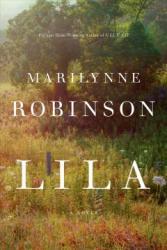
"Spread your wings over your servant, for you are a redeemer." Ruth 3:9
What happens when an old man, broken from years of suffering, looks into the face of a feral woman who has wandered into his church for shelter? In this moving story, he sees humanity in her face. He sees her loneliness and her sin-ravaged state, but he can see beyond that to a human being, near ruined, yet not beyond the hope of a redeemer. She is a person in need of compassion and comfort. He offers her a home for her world-weary frame. He marries her.
The story of Lila finds its poetic power in Robinson's unmatched ability to empathize with the human condition. Each page of this story is dripping with compassion and sympathy. The genius lies in how the very fabric of the story weaves a picture of the deepest desires of every human heart.
Lila, at her core, is a person in desperate need of protection and affection.
Here Robinson proves herself to be a master of symbolism. When a shawl was spread over the sickly, neglected, and dying toddler Lila, by a wretched woman overcome by compassion for an unloved child, this shawl and this memory become the defining features of Lila's life. And later, as a forsaken, hopeless, and forlorn grown woman, who has now lost the one person in the world who ever cared for her, Lila finds again someone spreading his dark suit jacket, the one he preaches in, over her freezing shoulders as they walk along the road. Lila says, looking back on that moment: "She thought it was nothing she had known to hope for and something she had wanted too much all the same." A covering, a home, protection. And again: "But if she had prayed in all the years of her old life, it might have been for just that, that gentleness. And if she prayed now, it was really remembering the comfort he put around her, the warmth of his body still in that coat. It was a shock to her, a need she only discovered when it was satisfied, for those few minutes." This story brings to life the theme that we often don't even know what to pray for and that mercy is so much bigger than our imagination.
Robinson is an author who truly understands how to express suffering, estrangement, loneliness, and courage in a breath-taking and lovely story of grace and redemption. She has a deep perceptiveness in the way she portrays the various motives that control the human heart and she writes with forthrightness and blazing accuracy. Read an be changed.
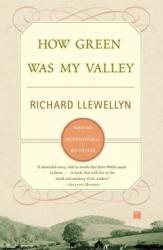
It would be extravagant for one to expect to come across such a book more than a handful of times in a lifetime. It is while reading a book like this that I am suddenly overcome with a desire to read less books, and to read only quality books and to read them more carefully. I would trade many stacks of books for this one pearl. I wonder that I have wasted so much of my time on so much drivel, when something so compelling was waiting to be read. I wonder that libraries and book stores are so crammed with piles of worthless pages, and stacks of pages, when buried beneath them all is a such a forgotten gem.
For every now and again comes along a writer who pulls back the veil from mundane life and reveals the mysteries and the wonder that we had forgotten were lurking all along. We are children again, humming along through the pages of this book, who see afresh the every day grandeur of a small mountain village, a loving family wading through pain and brokenness, sifting through the ideas of Marxism and socialism, trying to cling to tradition and faith.
We see a father and and his sons who love each other dearly but disagree fiercely; we long to live amongst the quaintness of tight-knit village living, but are revolted at the devastation caused by gossip and bitterness.
We become the young boy who is subject to grotesque treatment at an English school on account of the differences of dialect between the English and the Welsh. (This is so perplexing to Americans! Furthermore, the English treat the Welsh as though they are uneducated, uncouth barbarians, when in fact, the young boy taught himself advanced trigonometry while recovering from an illness, with the help from his older brother, a coal minor and an advanced mathematician himself.) But everywhere is beauty and freshness: the loveliness of the Welsh valley, the spirit of home and happiness, of merry-making and festivities. Not only does the Welsh valley echo with the clear song of joy and rejoicing, but the pages themselves ring with the notes of celebration that draw our eyes upwards from our shuffling feet, from looking at the day in and day out, to see brightness, clearness, the dawning of warmth, the tender meeting of souls, the sweetness of unbreakable family loyalties. These soul-swelling scenes are contrasted by the gruesome discovery of the ways of the world.
Only a few writers are given the vision to see and portray reality in all its starkness and splendor. Only a few know how to paint the picture only as they really see it, without any pretense or agenda. Only a few have the courage to detail all they see: the gruesome, the lovely, the perplexing; to look and to keep looking, and to record what they see in all its fullness.
Llewellyn blazes a trail for us all, to not only see, but to say; to not only know, but to tell. And in the telling, one comes to know more. We enter a small Welsh village 100 years ago, but we leave understanding our own spot on the planet a little better. We meet the Morgans but after having met them, we know our own friends, family, and neighbors, yes, even our own selves, a little better.

Cookie Vonn is fat. And while she doesn’t want her weight to rule her life, she’s interested in fashion design. And in fashion, size is everything. Her dreams of getting out of Scottsdale, attending Parsons, an elite fashion design school, and becoming a fashion designer for women of all sizes might not work out if she can’t lose the weight.
Fast forward two years. Thanks to insane self-control, and the power of NutriMin (a stand in for Weight Watchers) Cookie has lost the weight. And the opportunities do start to roll in. She’s offered the chance to meet her idol and cover his fashion show for NutriMin. Better yet, after a breakfast meeting with him, she gets an offer to design a special plus size line that will be released as a preview for his upcoming Winter/Spring Collection. But even as Cookie’s life seems to be exactly what she wanted, she finds being skinny isn’t a panacea, and that somewhere along the way, she might have lost not only the weight, but herself.
This is a great new adult coming of age novel that I ate right up. It’s not my normal fare – I typically don’t read YA romances unless the protagonist is a person of color. While Cookie is white, she is fat, and that is definitely an underrepresented group of people in most modern literature, so I decided to take a chance on this one, and I’m really glad I did. I think some overweight readers will balk at the idea of this being a Cinderella story, but that’s not what this is – a lot of the book really centers on Cookie realizing that while her weight might be part of her identity, its not what makes her Cookie, and that realization is what makes this a strong coming of age tale.
The book switches back and forth between past and present Cookie (fat and skinny), a literary device that worked well here. We know Cookie gets skinny, but we learn why and how in the “fat” chapters, and we get to learn how she reaps the fruits of her labor in the “skinny” chapters. I wanted to know what happened to both versions of Cookies, and I found myself staying up way too late one night reading this. Cookie herself is a smart, resourceful young woman, and while she makes some seriously stupid decisions, they all seem in character and are the sort of decisions an inexperienced young woman might make – especially when the adults around her were sometimes giving her awful advice. I hated both of her relationships, but they seemed pretty realistic, and hopefully young women can learn from Cookie’s mistakes. I wish she had cut both guys out of her life as they were both toxic (one of them gets off way too easily), but that is my really my only major complaint.
I really liked this one, and I think new adults and older teens who enjoy contemporary reads will as well. If you like Meg Cabot, Sophie Kinsella or Julie Murphy’s Dumplin’, this book is definitely for you. 4 stars.
Thanks to Netgalley and Harlequin Teen for the eARC, which I received in exchange for an honest review. Fat Girl on a Plane is available for purchase now, and you can put your copy on hold today!
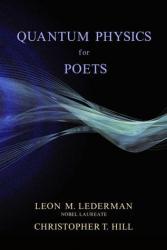
Quantum Physics for Poets explains some of the most arcane quantum physics topics to readers in a form which captures imaginations and aids understanding. Mr. Lederman and Mr. Hill have managed to write a book that spans simpler topics to far more complicated topics that most will never encounter, with a poetic theme to it that speaks to readers’ artistic souls. The blending of right brain and left is exceptionally done, managing to combine a love of understanding the world around us and a love of the singularly beatific rhythm that poetry provides in one’s life. An excellent book and an enthralling albeit challenging read, I would recommend this book to anyone with a high level of interest in the sciences, particularly physics, and a large interest in exploring its greater depths.
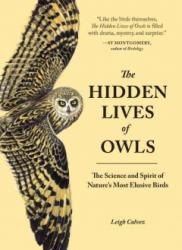
The Hidden Lives of Owls is a gripping nonfiction book that not only builds one’s knowledge of the species, but actively forges a bond between readers and the unique creatures. The book chronicles Mr. Calvez’s journeys through nature’s forests as he observes the innermost habits of owls. Mainly, Mr.
Calvez observes the owls at night, giving way to the book’s title of “Hidden Lives”, as he observes things one would not usually see in the daytime. Through its first-person narration by Mr. Calvez, a naturalist, the Hidden Lives of Owls reveals many aspects of the life of the owl about which one would never before be aware. I would recommend this book to anyone interested in the mysterious creatures that are owls, and interested in searching out further facts about these beautiful, wonderful, animals than is seen on the surface.
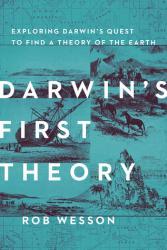
Everyone knows the name Darwin. The name is synonymous with one of the most important theories ever generated by mankind. At this point in the world, the name is less a name and more a representation of something much greater. Yet, as Mr. Welson leads us to question in his book Darwin’s First Theory, how deeply do we truly know the man who changed the face of our understanding of earth forever?
Written by leading geologist Rob Welson, Darwin's first theory explores the beginning of Charles Darwin’s quest to find a theory of the earth, and explores how his early theories helped shape his future and most famous theory of evolution. By bringing us along through well-researched narration of Mr. Darwin’s first journey on the HMS Beagle, Mr. Welson brings us to a greater understanding of the man whose theory shaped modern biology around the world. Darwin’s First Theory is an informative read. To anyone interested in Darwin, and interested in a greater understanding of biology's most influential theory, I would recommend this book.
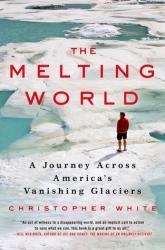
The Melting World, a tale of the author’s journey to Montana and beyond in order to better understand global climate change, is a powerful commentary on the state of global warming in our world today. Mr. White’s research is as fascinating as it is frightening, gripping us and emboldening readers to continue the changes in the world such that these caps cannot continue to atrophy at the rate they are. Since Mr. White traveled to Montana, and did research regarding the Rocky Mountain Ice, the Melting World hits close to home for Coloradoan readers. The book is neither overly long nor overly short, so one is left with a satisfied feeling of comprehension of the situation without being bombarded by information overload. Naturally, the Melting World is not a light book, and can be an upsetting one, but a book which is important to read nevertheless. To anyone who cares about the environment, I would recommend this gripping read.
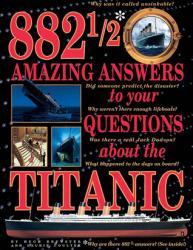
All Titanic lovers must read this. It is very straightforward and this book covered a lot of the questions I had. I recommend this book for ages 12+ because it’s a very serious book about a world-wide known tradegy and it covers sensitive topics that demand full respect. I thouroughly enjoyed reading it. It taught me more about this beautiful ship than I’ve ever known. 882.5 Amazing Answers to your Questions about the Titanic is worth reading! I rate it 4 stars because it was truly helpful and a great read.
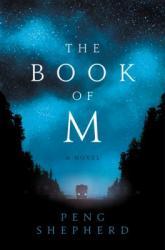
The Book of M is a beautiful dystopian novel about the power and beauty of memories and the pain that comes from losing them.
One day in a market in India, a man loses his shadow for no apparent reason anyone can explain. Shortly after, the man begins forgetting everything he ever knew, but in its place receives a strange and new power. This phenomenon of the lost shadow, soon becoming known as The Forgetting, spreads throughout the world and transform it into a strange dystopian world that is hardly recognizable.
The two main characters, Ory and Max, have escaped The Forgetting so far until one day, Max loses her shadow. Fearing that the more she forgets, the more dangerous she will become to Ory, she flees across a dark transformed world. All the while holding a tape recorder, on which she records her thoughts and feelings of the journey, and her experience of forgetting. Meanwhile Ory, not wanting to give up the little time they have left, follows her, embarking on a strange journey of his own.
The novel swivels back and forth, every other chapter, between his journey and hers. Max’s chapters to me were the most poignant, the most powerful. The recordings of her experiences on her journey, and the emotions she experiences as she fights against this inevitable loss, and slowly forgets everything, made me want to mourn with her for all she was losing. The emotions portrayed by Max’s character came across so real and raw, and anyone dealing with someone who is suffering from Alzheimer’s will be able to sympathize with this very real portrayal of what it’s like for them to forget everything about who they are. This novel is a tear jerker for sure!
Meanwhile Ory’s desperate attempt to find the woman he loves, is a testament to his hope in their survival and his belief in renewal, both for his wife, and I think on a deeper level, the world that was ravaged by the Forgetting. However, as his journey progresses, he is confronted with the reality of this new and dangerous world, and as he begins to adapt to this new world, he realizes that nothing will ever be the same again.
Filled with beautiful prose, strong character development, and peppered with details of a classic dystopian novel, this novel is a testament to the dystopian genre. Peng Shepherd does so much more than just tell a classic dystopian story, though. While it has all the classic elements of dystopian story, her portrayal of Max’s character almost made the novel read like a memoir but feel like a psychological thriller. Yet the existence of magic, and the way it shaped much of the spine of the story, took her novel into the realm of magical realism. The portrayal of war and action took her novel into the realm of an adventure story. Yet the stories focus on the female main character of Max, took the story into the realm of woman’s fiction. However, Max’s musing on her loving relationship with Ory, made the story delve into the realm of a romance. Taking her readers across a large geographic space, different cultures, different people, and different genres, she attempts and succeeds in a telling an ambitious and complicated story that seeks to display the power of the human spirit and ask what it is, to be human.
This story is beautiful, poignant, powerful, dark, filled with adventure, romance, and magic. The long story short, it has something for everyone. This book comes out June 5 but you can put it on your holds list today! If you haven't, please do! You won’t regret it!
Thank you to William Morrow a imprint of Harper Collins Publishers for an ARC of this beautiful novel in exchange for an honest review!
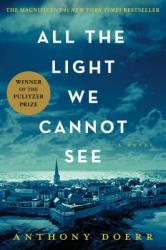
If All the Light We Cannot See were a movie, I would consider it “Oscar bait.” Set during the most romantic of World Wars: check. Main character with disability: check. Drama, tragedy, and suspense: check, check, and check. It’s then no wonder that All the Light We Cannot See ended up winning a Pulitzer. Sure, it’s filled with plenty of the “award” tropes that we tend to see repeated over and over again—but it works. What helps this book stand out from the rest of the books and movies that try too hard to earn awards is twofold: its characters and its plot.
Before I get too far into my praise for this book, I have to mention that the narrator for the audiobook version seemed to mispronounce a few words early on, which threw me for a loop and made me wonder if I’ve been mispronouncing them myself. Similarly, it was a little challenging to track the timeframes for some of the subplots, but the impact of the book was still the same. The author was able to paint a vivid set of lives set on opposite sides of a global conflict. From the blind French girl forced to survive on her own to the prodigious German boy with a penchant for radios and STEM, their internal and external conflicts were prime examples of gripping and engaging storytelling.
While there didn’t seem to be one primary driving plot in this book, the addition of the handful of subplots worked in concert to create a gem of a story (har har). These subplots were natural to the characters that embodied them, which helped to produce an amount of realism that held everything together. Everything just made sense, and even the semi-tragic ending was a satisfying end that left no subplot or loose end untied.
A beautiful piece of prose worthy of its Pulitzer, I give All the Light We Cannot See 5.0 stars out of 5.
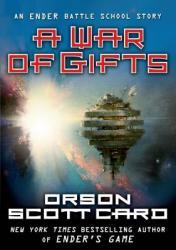
Side stories are a somewhat odd occurrence in the literary world. They’re essentially like the “deleted scenes” from movies: they don’t add to the plot, even if they are interesting by themselves. A War of Gifts is a side story to Ender’s Game that finds the reader back at the battle school during Ender Wiggin’s training period. While Ender’s Game is a tight piece of science fiction, with no room for a Santa Claus sub-plot, A War of Gifts does require some knowledge of the source material in order to understand this sub-plot.
I am always in awe of Orson Scott Card’s ability to take some of the most basic ideas and make them the most profound, most philosophically-intriguing debates. In the case of A War of Gifts, we have a fundamentalist Christian who was taught that the more commercial aspects of Christmas (like Santa Claus, for instance) are pure evil. Butting up against this characters’ beliefs are a few homesick recruits who unwittingly bring his ire upon them for celebrating a holiday in a way that might be construed as “religious.” The conflict comes in defining the activities that do or do not abide by the school’s “no religion” policy.
The debates of both sides are so well-described and thoroughly thought out that such a silly conflict suddenly becomes a multi-faceted problem with no easy solution. The reader also gets to see an Ender Wiggin who certainly has hints of his piercing personality that becomes present in the subsequent installments in the series. The specifics of A War of Gifts don’t lend themselves to being included in Ender’s Game, but it’s a delightful visit back to the world created therein. For fans of the series, they won’t be disappointed. For people who haven’t read the original story, A War of Gifts might be best saved for later.
An engaging side-story in the world of Ender’s Game, I give A War of Gifts 4.0 stars out of 5.
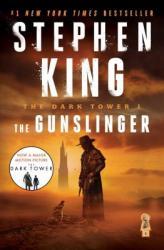
With the recent release of The Dark Tower (2017), I became interested in the book series that inspired the movie. I already knew the books would likely take a different direction from the film, and I was prepared for them. Up until now, I’ve enjoyed many of King’s other works, including The Shining, On Writing , and The Green Mile. That’s not to say I didn’t enjoy The Gunslinger; it’s more that most of his books have not been part of a larger series. I still want to know what happens in the next book of the Dark Tower series, so The Gunslinger certainly succeeded in that aspect.
Stephen King’s talent for description is in high form here as he crafts a world unlike our own but still linked to it via the wandering boy, Jake. Considering King’s background in describing all sorts of evil creatures and villains, the calm and calculating “Man in Black” is more terrifying than any violent antagonist, mostly with how psychological he is in his assaults against the eponymous Gunslinger. I also found following the main character of the Gunslinger led to an exciting journey as he overcomes the hurdles that prevent him from accomplishing his goal.
I understand that the first book in a series has a heavy burden to bear. It must introduce the characters and enough of their backstory to understand their motivation. It must also have a hook and be interesting enough by itself to warrant further reading. I probably could have done without some of the flashbacks and/or hallucination/memories, as they almost distracted from the action. I also felt this book didn’t necessarily cover enough ground, but I suppose that’s what the next books in the series will do: flesh out the conflict between the Gunslinger and the Man in Black.
A good foundation for a series that I hope improves over time; I give The Gunslinger 4.0 stars out of 5.
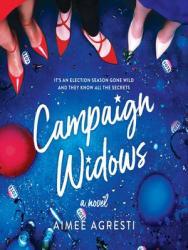
Every four years, presidential candidates and their staffers travel the country searching for funding and votes. Campaign Widows follows five people who have been left behind by their partners as they work for electoral victory. But don't kid yourself - these "widows" have lives of their own. There is Cady, a newcomer to DC who is producing a show that is sagging in the ratings, Reagan, a speechwriter who is now doing freelance work as the recent mother to two twin girls, Birdie, a media mogul and DC taste-maker, Madison, whose husband Hank is in the running to be president, and Jay, whose partner Sky who got quickly upgraded from the "culture" section of the Queue (think Huffpost) to "politics" due to a staffing shortage. The book covers each of these dynamic characters as they live their own lives and effect the election in their own ways - with or without their partners' support.
This book is the perfect summer beach read, which is to say that its a light, fluffy read that would be great for any vacation (no beach necessary). The premise and setting were unique - I've not read a ton of women's fiction that is politically centered or even set in DC, and that really added to the title's value for me. All of the characters were well drawn and interesting in their own way. Often, when I read a book with multiple POVs, I find myself more invested in certain stories and then race through the chapters I don't much care for, but that was not the case here. Everyone was likable and engaging.
On the downside, I wanted more political satire than I got. While there definitely was some satire (Hank is a Trump stand-in, for example), and some dream scenarios (a three person dead heat race), I wanted more. Everyone's arcs were tied up a little too neatly for my taste, and it also made the book feel a bit less realistic.
Overall, I would recommend this read to anyone who enjoys the genre and likes happy and easy reads. It reminded me of Crazy Rich Asians in tone and style, so if you liked that book, give this one a try! I hope it gets made into a TV show or movie, because it'd be excellent in either of those formats if the drama and comedy were both amped up a bit. If you are looking for a light summer read, look no farther. 4 stars - its a stand-out in its genre!
I received a complimentary copy of this book from Graydon House through NetGalley. Opinions expressed in this review are completely my own. Campaign Widows became available for purchase on 22 May, and you can put your copy on hold today!
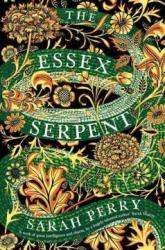
***THIS BOOK WAS RECEIVED FROM A GOODREADS GIVEAWAY***
It’s been a while since I’ve read a book as profound as The Essex Serpent. Perhaps it’s because they don’t write books like this anymore.
While written in the last few years, the style of The Essex Serpent is distinctly Victorian. It holds callbacks to the greats of gothic literature, including the physiological studies of Frankenstein and the back-and-forth letter writing of Dracula . All the while, the ever-present gloom of the muddy and foggy Essex shoreline hides the eponymous serpent just outside the reader’s view, providing anticipation of its reveal. Is the Essex Serpent real or is it a figment of so much imagination?
Of course, in staying with the Victorian style, the book does suffer somewhat in readability. The vocabulary and description are certainly more voluminous than modern volumes, but my biggest qualm seems to be more along the lines of the seemingly endless talk that occurs in the first half of the book—perhaps trying to mimic one of Jane Austen's romances—that only seems to be present for character exposition. There are also a few sub-plots that sound incredibly important, but don’t end up having much sway on the outcome of the plot.
Still, despite having to get used to the style, the characters and their drama is expertly crafted. In particular, the “friendship” between the widow Cora and the married clergyman Will was positively heart-pounding.
Cora’s son was delightfully peculiar, as was Will’s wife. If The Essex Serpent was more predictable, I’m sure the ending would have been different. I’ll have to settle for the conclusion as written, instead of having to read a more serious version of Sense and Sensibility and Sea Monsters . At least, the plot surrounding the Essex Serpent is exciting and was what kept me reading through the muddy first half.
A modern book expertly written in the Victorian style, I give The Essex Serpent 4.0 stars out of 5.
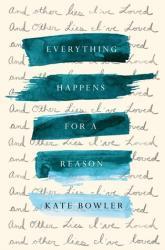
It's been a little while since I've read this book. It's about a professor who has written and researched the 'prosperity gospel', is diagnosed with cancer, and struggles to reconcile the two. The best part about the book was the appendix which talks about what and what not to do when interacting with someone going through a trauma. I read this book while a friend of mine was dying of cancer. I wish I had the opportunity to utilize the advice in this book to comfort her.
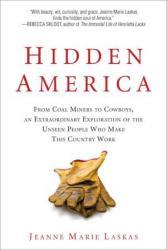
Great book. Hearing about careers that normally aren't in the spotlight was an eye opening experience. Well written and neutral, the author really lets her subjects shine.


